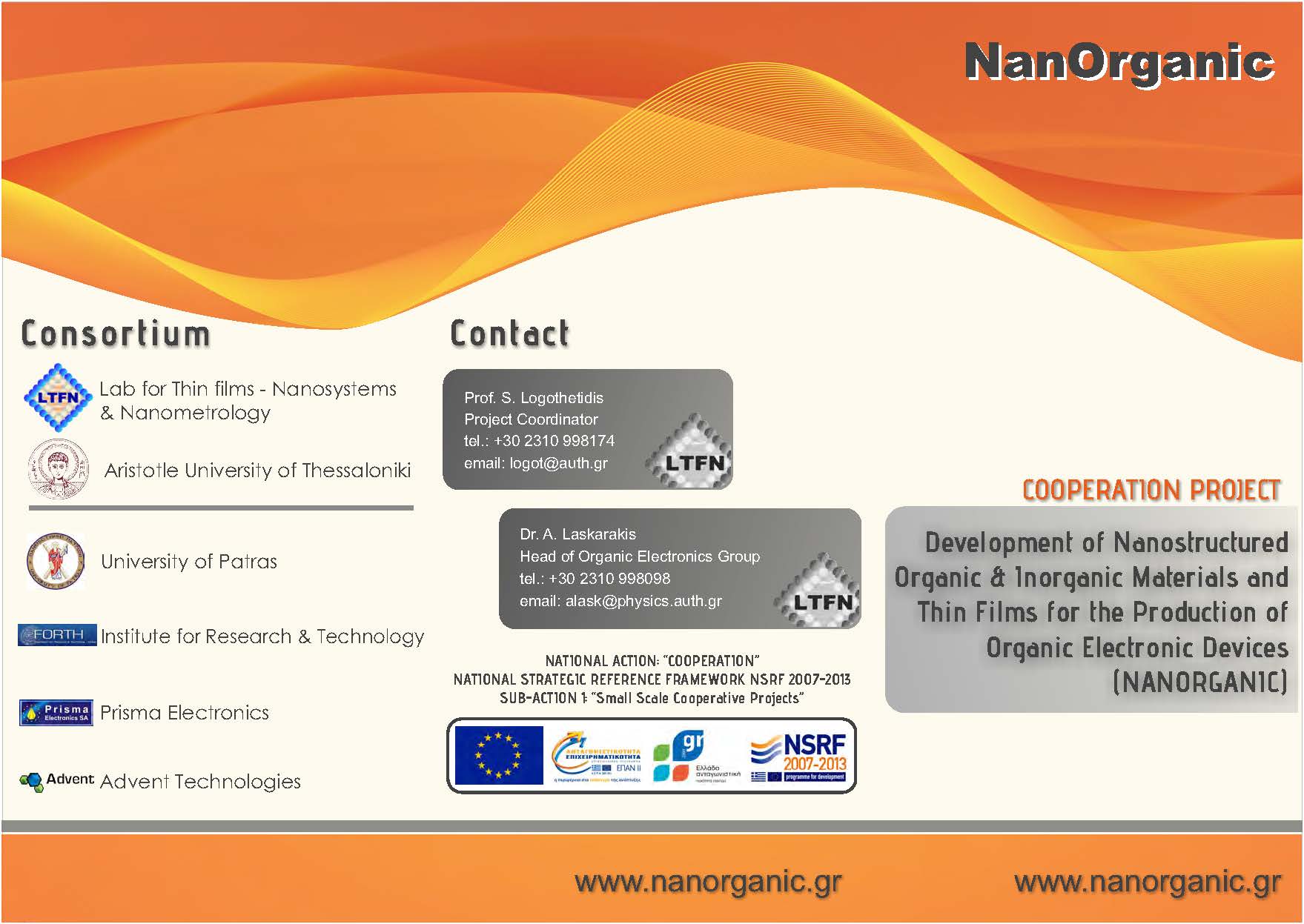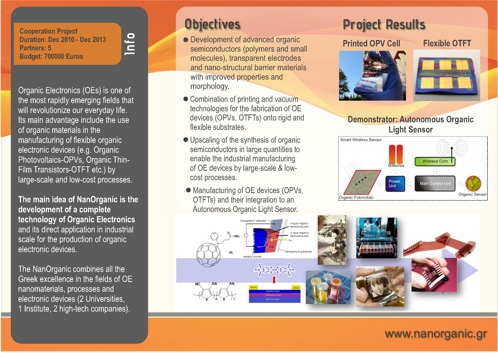|
Laboratory for Thin Films - Nanosystems & Nanometrology (LTFN) The Laboratory for Thin Films - Nanosystems & Nanometrology (LTFN) is established at the Physics Department of Aristotle University of Thessaloniki (AUTh). It has an experience of over 20 years in Thin films Technology, Fabrication of inorganic, organic and hybrid nanostructured materials, Developing/Deploying in-situ & real-time monitoring techniques and in Nanometrology. LTFN programs strive to interact with Academia, Research Institutes and Organizations and Industry and to transfer its technology to scientific and industrial users and developers and provide excellently educated graduates and research associates to society. The main research activities of the LTFN are focused on the following topics: Thin Films & Nanosystems Fabrication: Thin films, Multilayers deposition & Microfabrication with various PVD and wet techniques , Surface Modification and Materials Surface Treatment with ion beams and UV treatment, Vacuum Systems Design & Process control
LTFN covers a wide Spectrum of applications of Technologies in the era: Flexible organic electronics: flexible organic light emitting diodes-OLEDs for displays & lighting, flexible organic photovoltaic cells-OPVs, flexible circuits, organic photodetectors, Radio Frequency Identification Tags-RFID Nanoscience and Nanotechnology: Nanomaterials, Ion processes, Nanotubes, Nanoparticles, SAMs, Nanoelectronics, Nanomechanics Information Technology: Organic Electronics, Micro-electronics, Optoelectronics & Optics, Storage and Displays, Micro - fabrication, Micro- technologies Renewable Energy Resources: Organic Photovoltaic Cells (OPVs), OPV & PV materials, PV device design & simulations, Solar thermal materials & systems, Photometric measurements Nanobiotechnology & Nanomedicine: Protein, Enzyme, DNA adsorption onto nanostructured surfaces, surface treatment to induce/enhance biocompatibility, optical, structural, surface and cytocompatibility characterization of biomaterials, nanocoatings for applications in Nanomedicine (stents, orthopaedic implants, contact lenses, biosensors etc). - Fabrication of Nanomaterials and Microsystems (for Optical, Photovoltaic, Optoelectronics, Electronic, Protective, Decorative, Catalytic and Biomedical applications) - Thin films and coatings technology of Metals, Semiconductors, Insulators, Nitrides, Oxides and Polymers - Flexible Organic Electronic Devices, Organic semiconductors & conductors, barrier materials for encapsulation of Flexible Organic Electronic Devices - Design of vacuum chambers, Smart optical sensing systems (adapted to process) and non-destructive techniques - High performance in-situ monitoring thin films growth and various processes. - Non-destructive optical characterization of thin films, coatings, nano- and bulk materials - Microstructural and nanomechanical characterization of thin films, coatings and bulk materials - Development of software and algorithms for process control, prediction of operational function and properties of thin films and microsystems -.Design and simulations of Optical - PV & Solar materials and systems Training of graduates, post-graduates and research scientists in the following subjects: - Technologies for fabrication and characterization of novel inorganic, organic and hybrid materials and microsystems - New techniques for metrology, analysis, examination, quality evaluation of material properties - Methods and measurements for certification of materials properties - interrelation with product and manufacturing demands
- Carrying out work for a Thesis (under-graduate, post-graduate or Doctoral degree) - Short courses and seminars for practicing physicists and engineers on various subjects in the areas of thin film technology, characterization, metrology and computational techniques |







